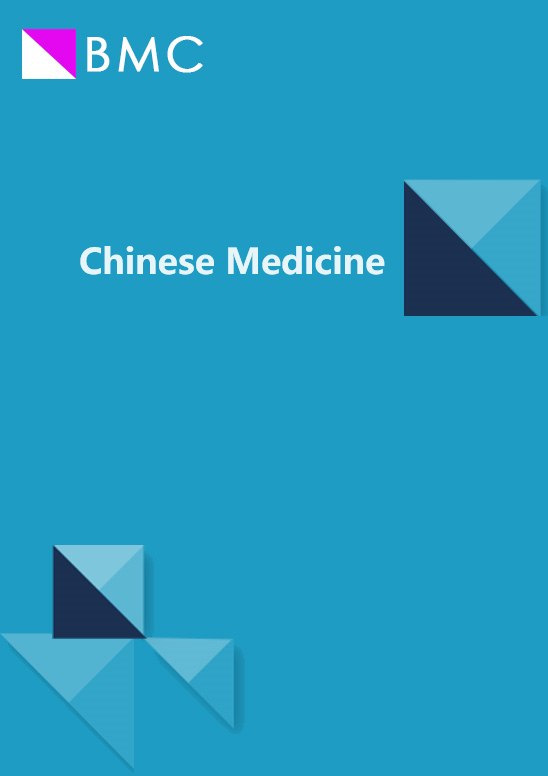The improvement of modified Si-Miao granule on hepatic insulin resistance and glycogen synthesis in type 2 diabetes mellitus involves the inhibition of TNF-α/JNK1/IRS-2 pathway: network pharmacology, molecular docking, and experimental validation
IF 5.3
3区 医学
Q1 INTEGRATIVE & COMPLEMENTARY MEDICINE
引用次数: 0
Abstract
Modified Si-Miao granule (mSMG), a traditional Chinese medicine, is beneficial for T2DM and insulin resistance (IR), but the underlying mechanism remains unknown. Using network pharmacology, we screened the compounds of mSMG and identified its targets and pathway on hepatic IR in T2DM. Using molecular docking, we identified the affinity between the compounds and hub target TNF-α. Then these were verified in KK-Ay mice and HepG2 cells. 50 compounds and 170 targets of mSMG against IR in T2DM were screened, and 9 hub targets such as TNF and MAPK8 were identified. 170 targets were mainly enriched in insulin resistance and TNF pathway, so we speculated that mSMG might act on TNF-α, JNK1 and then regulate insulin signaling to mitigate IR. Experimental validation proved that mSMG ameliorated hyperglycemia, IR, and TNF-α, enhanced glucose consumption and glycogen synthesis, relieved the phosphorylation of JNK1 and IRS-2 (Ser388), and elevated the phosphorylation of Akt (Ser473) and GSK-3β (Ser9) and GLUT2 expression in KK-Ay mice. Molecular docking further showed berberine from mSMG had excellent binding capacity with TNF-α. Then, in vitro validation experiments, we found that 20% mSMG-MS or 50 μM berberine had little effect in IR-HepG2 cell viability, but significantly increased glucose consumption and glycogen synthesis and regulated TNF-α/JNK1/IRS-2 pathway. Network pharmacology and molecular docking help us predict potential mechanism of mSMG and further guide experimental validation. mSMG and its representative compound berberine improve hepatic IR and glycogen synthesis, and its mechanism may be related to the inhibition of TNF-α/JNK1/IRS-2 pathway.改良四妙颗粒对2型糖尿病肝脏胰岛素抵抗和糖原合成的改善涉及TNF-α/JNK1/IRS-2通路的抑制:网络药理学、分子对接和实验验证
中药改良四妙颗粒(mSMG)对T2DM和胰岛素抵抗(IR)有益,但其潜在机制仍不清楚。我们利用网络药理学筛选了改良四妙颗粒的化合物,并确定了其对 T2DM 肝 IR 的作用靶点和作用途径。通过分子对接,我们确定了化合物与枢纽靶点 TNF-α 之间的亲和力。然后在 KK-Ay 小鼠和 HepG2 细胞中进行了验证。共筛选出50个化合物和170个mSMG抗T2DM中IR的靶点,并确定了9个中心靶点,如TNF和MAPK8。170个靶点主要富集在胰岛素抵抗和TNF通路中,因此我们推测mSMG可能作用于TNF-α、JNK1,进而调节胰岛素信号转导以缓解IR。实验验证证明,mSMG可改善KK-Ay小鼠的高血糖、IR和TNF-α,促进葡萄糖消耗和糖原合成,缓解JNK1和IRS-2(Ser388)的磷酸化,提高Akt(Ser473)和GSK-3β(Ser9)的磷酸化以及GLUT2的表达。分子对接进一步表明,mSMG中的小檗碱与TNF-α具有良好的结合能力。然后,在体外验证实验中,我们发现 20% mSMG-MS 或 50 μM 小檗碱对 IR-HepG2 细胞活力影响不大,但能显著增加葡萄糖消耗和糖原合成,并调控 TNF-α/JNK1/IRS-2 通路。mSMG及其代表化合物小檗碱能改善肝IR和糖原合成,其机制可能与抑制TNF-α/JNK1/IRS-2通路有关。
本文章由计算机程序翻译,如有差异,请以英文原文为准。
求助全文
约1分钟内获得全文
求助全文
来源期刊

Chinese Medicine
INTEGRATIVE & COMPLEMENTARY MEDICINE-PHARMACOLOGY & PHARMACY
CiteScore
7.90
自引率
4.10%
发文量
133
审稿时长
31 weeks
期刊介绍:
Chinese Medicine is an open access, online journal publishing evidence-based, scientifically justified, and ethical research into all aspects of Chinese medicine.
Areas of interest include recent advances in herbal medicine, clinical nutrition, clinical diagnosis, acupuncture, pharmaceutics, biomedical sciences, epidemiology, education, informatics, sociology, and psychology that are relevant and significant to Chinese medicine. Examples of research approaches include biomedical experimentation, high-throughput technology, clinical trials, systematic reviews, meta-analysis, sampled surveys, simulation, data curation, statistics, omics, translational medicine, and integrative methodologies.
Chinese Medicine is a credible channel to communicate unbiased scientific data, information, and knowledge in Chinese medicine among researchers, clinicians, academics, and students in Chinese medicine and other scientific disciplines of medicine.
 求助内容:
求助内容: 应助结果提醒方式:
应助结果提醒方式:


